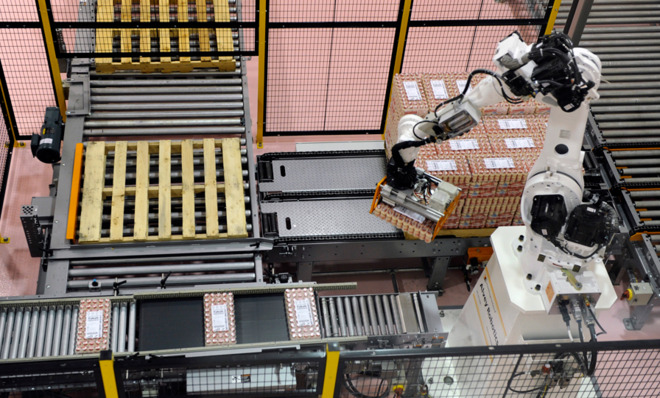Outsourcing won't wreck Seattle's new minimum wage. But robots might.
Don't worry: There's a better alternative

A free daily email with the biggest news stories of the day – and the best features from TheWeek.com
You are now subscribed
Your newsletter sign-up was successful
Yesterday, Seattle implemented a $15 minimum wage. That policy was a part of the election platform of Kshama Sawant, the only socialist city councilor in America. Her election became a driving force behind the new minimum wage legislation in Seattle, and when the law passed she praised the legislation as a "historic victory" for working people. And it was, in the short term. In the long term, though, it will probably go down as a big victory for robots.
Here are the details of the law: Seattle will phase in the new minimum wage from April 2015 over several years. Larger companies will have to implement the changes earlier than small businesses and nonprofit groups. Big corporations including Subway and McDonald's — which employ about two thirds of Seattle workers presently earning less than $15 an hour — will be required to raise pay in increments over three years. Meanwhile, smaller businesses of up to 500 workers will have seven to 10 years to implement the increases.
Proponents of the hike — including the authors of a University of Washington study — think it will mean less worry and financial difficulty for up to 100,000 Seattle workers on the minimum wage. They have high hopes, saying poverty in the city will decrease by more than a quarter and the government will save money as people grow less dependent on food stamps and other welfare payments.
The Week
Escape your echo chamber. Get the facts behind the news, plus analysis from multiple perspectives.

Sign up for The Week's Free Newsletters
From our morning news briefing to a weekly Good News Newsletter, get the best of The Week delivered directly to your inbox.
From our morning news briefing to a weekly Good News Newsletter, get the best of The Week delivered directly to your inbox.
Opponents think it will simply destroy jobs — leaving the working class in Seattle even worse off — as firms migrate where the minimum wage is lower.
Evidence on minimum wage hikes from San Jose and San Francisco — which now has an effective $13.15 minimum wage — suggests that such hikes don't necessarily destroy jobs. How could that be? Well, in many industries the draw of a major metropolis may be big enough to convince firms to accept higher labor costs as another location-related expense, similar to higher rental costs.
But in the longer run, I highly doubt that a higher minimum wage is the right policy to ensure a decent standard of living for the poor. The key factor is the emerging economic phenomenon of robotics. Robots have already taken over many roles in the manufacturing industry, and are now moving into roles including food servers, bank tellers, telephone operators, receptionists, mail carriers, travel agents, typists, telemarketers, and stock market traders. The higher the minimum wage goes, the lower the threshold will go for robots to replace humans in many minimum wage roles.
While there are sure to remain many jobs that still require a human touch — think personal assistants, janitors, home health aides, and security personnel — and while lots of new human professions will likely emerge, the automation revolution is already putting lots of people out of work. To me, this suggests a better approach is universal basic income, a version of which was first advocated in America by Thomas Paine.
A free daily email with the biggest news stories of the day – and the best features from TheWeek.com
There are two kinds of basic income policy. The first is a so-called negative income tax. It works like a classic safety net program: If an individual's income falls below a certain level, like $1,500 a month, then the government makes up the difference. The funds could come from consolidating existing welfare programs, like state-run pension schemes and unemployment benefits, and from raising taxes on corporations and closing tax loopholes. In other words, taxing the owners of the robots would support the people who have been put out of work by them.
The second is a universal income policy, where everyone receives a guaranteed payment (say, $1,500 a month) irrespective of their income. This would obviously require raising taxes to make up for the higher costs, but in a future where corporations boosted by the benefits of robotics are making larger and larger profits while requiring fewer and fewer workers, such policies may become increasingly feasible. There have already been some very serious proposals to initiate such a scheme in Switzerland — but Seattle might now be the best place for a test run.
John Aziz is the economics and business correspondent at TheWeek.com. He is also an associate editor at Pieria.co.uk. Previously his work has appeared on Business Insider, Zero Hedge, and Noahpinion.